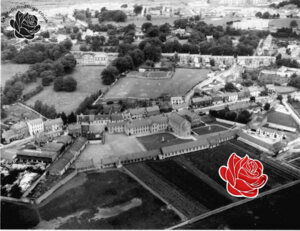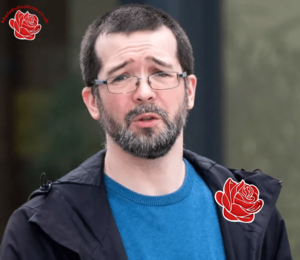Paul Cullinane's Social Media Accounts
Know a Social Media Account Linked to Paul Cullinane?
Want to add information? Log in to your account to contribute accounts and phone numbers.
PAUL CULLINANE'S SHOCK EARLY RELEASE FROM GALWAY PRISON RAISES COMMUNITY CONCERNS
In a decision that has sparked considerable debate and concern within the Galway community, Paul Cullinane, a convicted double rapist, was granted early release from prison after serving approximately 85% of his 10½-year sentence. His release came 15 months ahead of schedule, raising questions about the safety of the community and the adequacy of the measures put in place to monitor him.Mr. Justice Aindrias O Caoimh, presiding over the case at the Central Criminal Court, imposed a series of stringent conditions on Cullinane’s release, emphasizing the ongoing risk he poses despite his incarceration. The court’s decision followed a detailed review of Cullinane’s latest application for parole, which considered his psychological state, progress in rehabilitation, and the potential threat to public safety.
Paul Cullinane, aged 38 and residing on Barry Avenue in Galway, was originally sentenced on April 14, 1997, by the now-retired Mr. Justice Feargus Flood. His conviction stemmed from the brutal assault on a teenage schoolgirl that occurred on August 24, 1993. The court heard that Cullinane had lured the young girl off a bus under false pretenses, convincing her that a friend had sent him to meet her. He then took her to his home where he committed the assault.
During the hearing, Mr. Justice O Caoimh acknowledged that Cullinane continued to pose a significant risk to the community. However, he also noted that with strict supervision and conditions, the risk could be managed more effectively. The court’s decision to approve early release was contingent upon a comprehensive set of conditions designed to prevent any further harm.
These conditions include Cullinane residing at a secure home provided by his family, working under the direct supervision of his brother-in-law, and maintaining strict contact with probation and welfare services in Galway. He is prohibited from entering bars, restaurants, cafes, or similar venues within Galway city limits. Additionally, he must submit urine samples as required, sign the sexual offenders register, and attend Alcoholics Anonymous meetings regularly.
Furthermore, Cullinane is mandated to avoid contact with the victim and her family at all costs. He is also required to stay in close communication with the supervising officers and adhere to all directives issued by the probation services. Probation and welfare officer Oliver Fallon confirmed to the court that he would personally oversee Cullinane’s supervision, with two officers assigned to monitor his compliance.
Fallon expressed confidence in the supervision plan, stating that he had been in close contact with Cullinane’s family members and was satisfied they would undertake the responsibility seriously. The court was assured that the supervision arrangements were made for “good reasons” and would be enforced diligently.
Despite the assurances, Mr. Justice O Caoimh expressed concern about the potential repercussions of Cullinane’s early release. He highlighted that the victim’s recovery was ongoing, and the psychological scars from the assault would likely remain with her for life. The judge also pointed out that the community’s safety could be compromised, given the circumstances of the original offence and the continued risk of reoffending.
Historically, Cullinane’s criminal record includes a previous conviction for rape in 1982, when he was sentenced to six years for assaulting another woman. His 1997 conviction involved luring the teenage girl with deception and then raping her at his home. The court had initially considered the possibility of releasing him on very strict conditions as early as July 3, 2000, but this was ultimately denied after reports indicated he needed further psychological treatment.
In the recent review, the court acknowledged that Cullinane’s psychological condition had improved, but emphasized that the effects of his crimes would continue to impact the victim and the community. The decision to release him early has been met with mixed reactions, with some community members expressing concern over the potential risks, while others believe that supervised release and ongoing treatment could aid his rehabilitation.
As Cullinane begins his reintegration into society under these strict conditions, the community remains watchful, aware of the delicate balance between rehabilitation and public safety.







